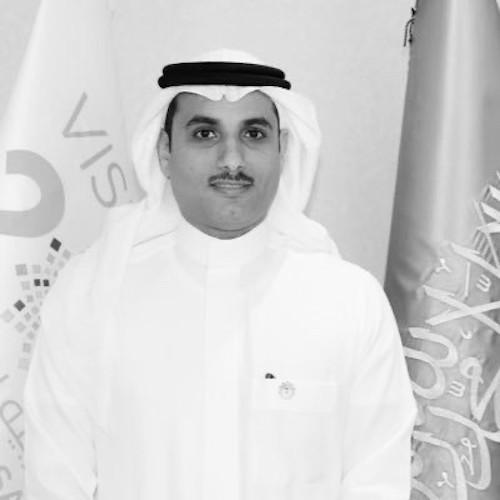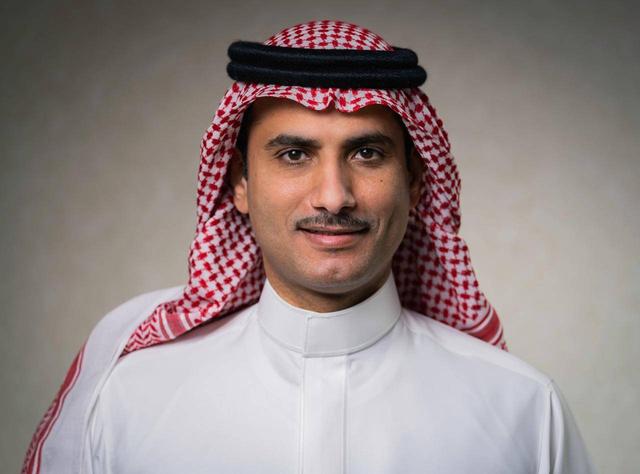The localization of promising industries is one of the most important priorities of the Ndelb Program.


M. Suleiman Al Mazrou
Khaled Al Gharbi from Riyadh Engineer Suleiman Al-Mazrou, CEO of the National Industrial Development and Logistics Program "Ndaleb", told Al-Eqtisadiah that the program is moving in the right direction, as it is able to exceed the 2030 goals in cooperation with more than 40 executive government agencies.
Al-Mazrou confirmed that the energy sector is achieving unprecedented qualitative leaps, as the gas production and distribution capacity has been raised to 18 billion standard cubic feet per day, pointing out that transforming the Kingdom into a leading industrial power is one of the most important objectives of the "Nandab" program.
He pointed out that the development of industries in all its forms, whether oil or non-oil, is an important factor and a key factor in a solid and more diversified economy, explaining that the program was designed in partnership with the executive authorities, a number of initiatives to raise the demand for local content.
The CEO of the National Industrial Development and Logistics Program "Ndaleb" described the program's achievements since its launch, and during a record period, as "a very wonderful thing."
He added, "If we wear the investor's hat, whether he is local or foreign, one of the results of the integration of the program sectors is that he obtains the needs necessary for its success, as the resources are provided by the energy sector and the mining sector, and the industrial sector provides the appropriate infrastructure for the investor, and the logistics sector provides and facilitates access operations. To the local and global markets, and all sectors are working in an integrated way to provide competitive legislation and regulations, in addition to the capabilities and incentives that were built after studying the needs of investors.
Al-Mazrou confirmed that the program’s plans and method of work were not based on assumptions or dreams, on the contrary, at the end of 2019 and when the program plan began to be updated, workshops were held for three months, attended by a large number of investors and government agencies, and the challenges facing them were identified. This is a major and important part of the methodology of building the program plan, which contains ambitious, realistic and achievable goals, and then the determination of the executive authorities.
He stated that transforming the Kingdom into a leading industrial power is one of the most important goals of the program, which it is working to achieve continuously through the Ministry of Industry and Mineral Resources and the executive authorities in the sector, through a large number of initiatives, which "we hope will have a qualitative and sustainable impact, and we are starting to see a small part of Its results, as it was approved to increase the capital of the Industrial Development Fund to 105 billion to enable it to fulfill its role as a major financial driver for the industrial transformation in the Kingdom.”
He stated that this achievement aims to support the growth of the industrial sector and contribute to the development of the energy, mining and logistics sectors, in addition to introducing new financial products that meet the needs of investors, as the capital of the Industrial Fund was 65 billion riyals before the launch of the vision.
The CEO of the National Industrial Development and Logistics Program "Ndaleb" said, "The localization of promising industries is one of the program's most important priorities, and among these industries is aquaculture, where the Kingdom's production in 2016 was about 40,000 tons annually, and today production has reached more than at 75,000 tons annually, and we are working in partnership with the executive authorities to reach production to 600,000 tons annually by 2030. We are proud of the quality projects that have been achieved on the ground, as, for example, the first project in the history of the Kingdom to produce shrimp in inland waters On a commercial scale using the closed system in the Tabuk region, operated by one of the international companies specialized in this field.
He explained that to support national products and enhance their global leadership, which government support for Saudi products to reach global markets did not have the hoped-for effect in the period preceding the launch of Vision 2030, the Saudi Export-Import Bank was established, which provides many financing products to serve international exporters and buyers, with the aim of supporting Exporting Saudi products and accessing global markets, so that by 2030, the Kingdom’s products will be competitive products in the majority of markets in the world. An example of the feasibility of these efforts is the approval of the official authorities in Singapore, Russia and China to import Saudi aquaculture products.
He added, "The Kingdom is one of the highest countries in military spending globally, but the level of benefit from this spending to localize military industries did not exceed 2%, so the target for localizing military industries was assigned to the program, where the General Authority for Military Industries succeeded in raising the Saudization rate to reach Today, it is about 8 percent, while we are working to reach the localization of 50 percent of the military industries by 2030, and important examples that can be found are the localization of the fast interceptor boats industry, in addition to the localization of the armored industry. From the Fourth Industrial Revolution in a way that enables national factories to provide quality jobs for Saudi competencies, and reduce dependence on foreign labor, and jobs that do not require highly qualified, and technology can replace them.
He stated that Saudi Arabia is a spring that supplies the world with energy, and that this sector, led by the Ministry of Energy, is achieving unprecedented qualitative leaps during a record period, as the ministry succeeded in raising the capacity of gas production and distribution, as it was the capacity of gas processing in the Kingdom even before the launch of the program. 15.5 billion standard cubic feet per day, and now the capacity during a record period has reached 18 billion standard cubic feet per day, indicating that gas production is targeted to reach 23 billion standard cubic feet per day by 2030.
He pointed out that one of the great examples of what has been accomplished in this regard is the Al-Fadhili Gas Plant project, with a processing capacity of 2.5 billion standard cubic feet per day.
Al-Mazrou said, "The Ministry of Energy and the executive authorities in the energy sector have also succeeded in increasing the contribution of renewable energy sources to the energy mix, as we used to rely mainly on hydrocarbons in the production of electricity, and now the first renewable energy project tenders have been launched to raise the Kingdom's energy production capacity. Renewable energy, and world records have been achieved in the purchase prices of solar energy (8.78 Halalas per kilowatt-hour) and wind energy (7.46 Halalas per kilowatt-hour. Yesterday’s dreams have become today a reality we cherish, and the solar energy project in the city of Sakaka produces 300 megawatts.” Which is equivalent to the energy need of 45,000 homes, while the 400 MW Dumat Al-Jandal wind energy project is being implemented, equivalent to the consumption of 60,000 homes, while we aim that the contribution of renewable energy to the energy mix by 2030 will reach 50 percent. .
He stated that the efficiency of electric power generation in the Kingdom has been raised, as it was 36 percent in 2016 and rose in 2019 to 39.2 percent, while efforts are being made to reach more than 41 percent by 2030, when this leap was achieved. By improving operations, expanding networks, and operating new highly efficient plants, which saved large quantities of liquid fuel used in electricity production plants.
He added, "As announced by Prince Abdulaziz bin Salman, Minister of Energy, one of the goals of the vision, which is being achieved, is that the share of renewable energy in the energy mix reaches 50 percent by 2030, which is the most ambitious target in the world, and we have no doubts. The ability of the developed energy sector to achieve this huge target.
Al-Mazrou said, "We aim to raise the sector's contribution to the GDP to reach 281 billion riyals by 2030. Examples that can be cited and demonstrate the seriousness of working to achieve the goals are: the initial launch of the national geological database platform, and a (mining) platform for issuing mining licenses."
